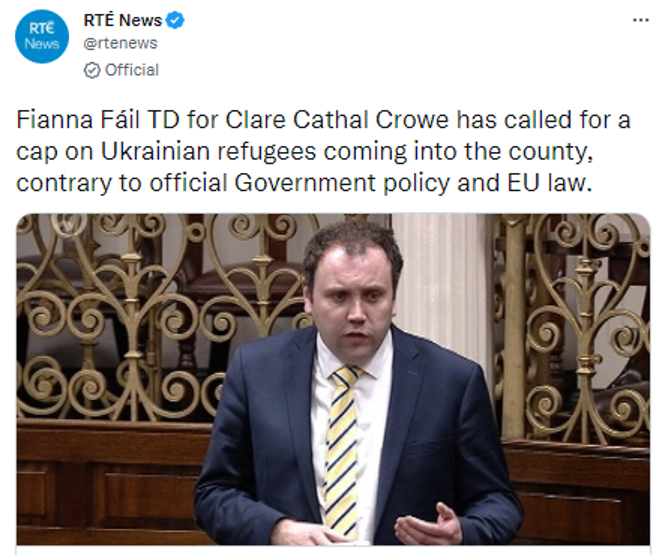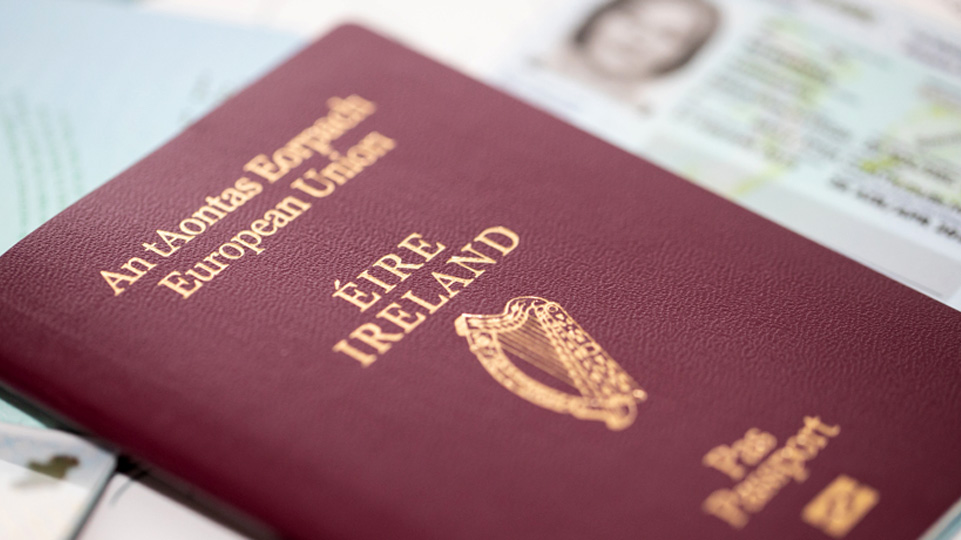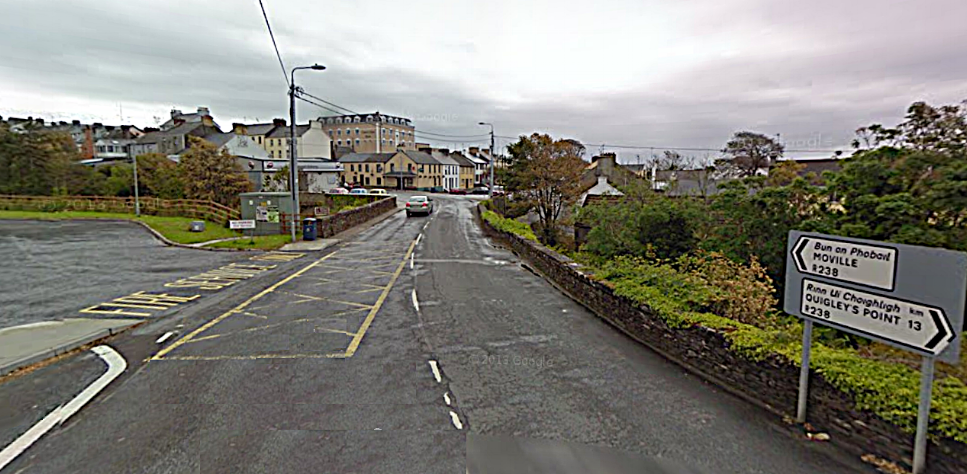Orghan ☭ offers a critique of a recent IRSP
document on immigration.
The response to migrant workers accepting abysmal working conditions as a consequence of their precarious position is not to limit immigration, but to fight alongside them in unions and on the streets, against our common enemy.
It is our common enemy, the capitalist ruling class, that you correctly state has an interest in keeping wages low and conditions bad, which is something that they can achieve by employing migrant workers. Why then is your reaction to this to curry the favour of this ruling class that oppresses us all? Do you not dare dream bigger than to be allowed to do the precarious work that migrants are currently doing? You could be dreaming of a united working class, realising our power through sheer numbers. But saddeningly, you are giving in to this reactionary tendency which pits workers against each other.
This brings us to the most important part of this critique: At many points in your paper, you package what is obviously a reactionary position in leftist rhetoric. Firstly, this doesn't change that anti-immigration positions oppose the interest of the international working-class movement. Secondly, we see no other explanation for this than that you hope to gain support from working-class people who are unfortunately drifting off into reactionary politics more and more as a consequence of right-wing propaganda. We struggle with the same issue of especially working-class people falling for these talking points that obviously oppose their interest here in Switzerland as well. It is a trend that can be observed in all of Europe. But our response to this cannot be to jump on the same trend. Yes, leftist movements can gain supporters by adapting right-wing positions, but at what cost? Who would these new-found supporters be? Our comrades?
Surely not. They remain reactionaries if they enter our organisations due to us ceding our revolutionary position. We cannot grow our revolutionary movement by betraying it. We must grow it by focussing on the workers who are open to our leftist positions to join our cause. We must work on our propaganda in hopes of also reaching those who have already started going down the right-wing path and convincing them to turn around, instead of meeting them on the right side.
Furthermore, it is at least our local experience that migrant workers tend to have a lot more class-consciousness than local workers, especially if they hail from countries with strong labour movements.
The unions that make the effort to address them directly quickly find these migrant workers to form the frontline of their movement. You talk of "numbers" entering Ireland, but they are not numbers, they are people! The vast majority of them working-class, many from regions suffering from a history of colonisation, which often contributes to them being driven from their homes.
Resources like food, housing, etc. are not scarce, and this perceived scarcity is not a consequence of immigration but of how these resources are made available to the people. You even correctly state this yourselves in your paragraphs about landlordism. In capitalism, there is generally overproduction, the problem lies in how the products of our labour are distrubuted. As long as the working class is not in power, these resources are being distributed by capitalists.
They distribute them inefficiently and unfairly in order to sow dissent among workers. With the rhethoric you use in this paper, you are lending the capitalists a helping hand.
As an internationalist organisation, we have joined the IRSP's events in the past, as well as organised acts of solidarity with the Irish movement here in Switzerland. Under these new conditions, we will no longer be able or willing to participate in IRSP marches or events. Nor will we organise any actions of solidarity for the IRSP in the future. Some of us will be in Ireland for Easter, but we would not join the IRSP march.
We urge you not to give in to capitalist tactics of division and to stand for a strong, internationally united working class. Should this proposed paper become your official position, you are crossing a line which would no longer allow us in good conscience to support your organisation. While we remain unwaveringly committed to the cause of a free and united Ireland, we will find ways to put this position into practice that do not involve working with an organisation that is prepared to stab the international workers' movement in the back in exchange for short-term gains.
This brings us to the most important part of this critique: At many points in your paper, you package what is obviously a reactionary position in leftist rhetoric. Firstly, this doesn't change that anti-immigration positions oppose the interest of the international working-class movement. Secondly, we see no other explanation for this than that you hope to gain support from working-class people who are unfortunately drifting off into reactionary politics more and more as a consequence of right-wing propaganda. We struggle with the same issue of especially working-class people falling for these talking points that obviously oppose their interest here in Switzerland as well. It is a trend that can be observed in all of Europe. But our response to this cannot be to jump on the same trend. Yes, leftist movements can gain supporters by adapting right-wing positions, but at what cost? Who would these new-found supporters be? Our comrades?
Surely not. They remain reactionaries if they enter our organisations due to us ceding our revolutionary position. We cannot grow our revolutionary movement by betraying it. We must grow it by focussing on the workers who are open to our leftist positions to join our cause. We must work on our propaganda in hopes of also reaching those who have already started going down the right-wing path and convincing them to turn around, instead of meeting them on the right side.
Furthermore, it is at least our local experience that migrant workers tend to have a lot more class-consciousness than local workers, especially if they hail from countries with strong labour movements.
The unions that make the effort to address them directly quickly find these migrant workers to form the frontline of their movement. You talk of "numbers" entering Ireland, but they are not numbers, they are people! The vast majority of them working-class, many from regions suffering from a history of colonisation, which often contributes to them being driven from their homes.
Resources like food, housing, etc. are not scarce, and this perceived scarcity is not a consequence of immigration but of how these resources are made available to the people. You even correctly state this yourselves in your paragraphs about landlordism. In capitalism, there is generally overproduction, the problem lies in how the products of our labour are distrubuted. As long as the working class is not in power, these resources are being distributed by capitalists.
They distribute them inefficiently and unfairly in order to sow dissent among workers. With the rhethoric you use in this paper, you are lending the capitalists a helping hand.
As an internationalist organisation, we have joined the IRSP's events in the past, as well as organised acts of solidarity with the Irish movement here in Switzerland. Under these new conditions, we will no longer be able or willing to participate in IRSP marches or events. Nor will we organise any actions of solidarity for the IRSP in the future. Some of us will be in Ireland for Easter, but we would not join the IRSP march.
We urge you not to give in to capitalist tactics of division and to stand for a strong, internationally united working class. Should this proposed paper become your official position, you are crossing a line which would no longer allow us in good conscience to support your organisation. While we remain unwaveringly committed to the cause of a free and united Ireland, we will find ways to put this position into practice that do not involve working with an organisation that is prepared to stab the international workers' movement in the back in exchange for short-term gains.
⏩ Orghan is a Swiss anti-capitalist collective.











































